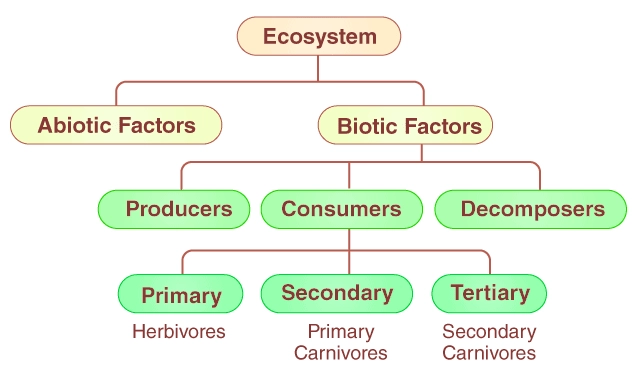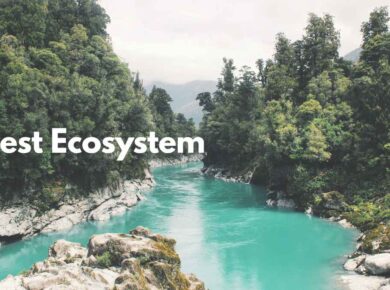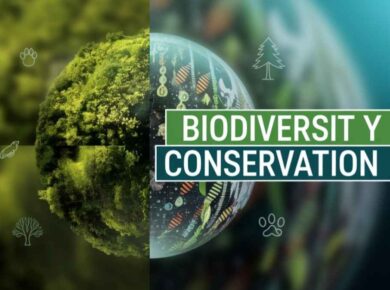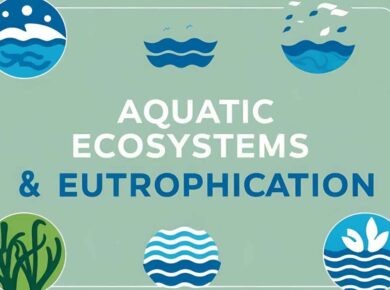Ecology, Biome, Ecotone, Niche, Ecosystem, Biosphere
Ecology
Ecology may be defined as the scientific study of the relationship of living organisms with each other and with their environment. The emphasis is on relationships between organisms and the components of the environment namely abiotic (non-living) and biotic (living). Ecology is derived from 2 Greek words.
- Oikos >> Home or place to live in
- Logos >> Study
- Literally, it means study of home or nature.
- Ecology not only deals with the study of the relationship of individual organisms with their environment, but also with the study of populations, communities, ecosystems, biomes and biosphere as a whole.
Also read: Ecological Succession, Food Chain, Food Web, Ecological pyramids
Biome
- a large community unit, characterized by a major vegetation type and associated fauna, found in a specific climatic region
- No 2 biomes are alike
Ecotone
- Transitional area between two biomes or diverse ecosystems (where two communities meet & integrate)
- Examples: between a field and forest, between forest and grassland
- may appear as a gradual blending of the two communities across a broad area, or may manifest itself as a sharp boundary line
- May contains some organisms which are entirely different from that of adjoining communities
- Sometimes the number of species & population density of some of the species is much greater in this zone than either community, Known as edge effect
- Organisms which occur primarily or most abundantly in this zone are known as edge species.
Niche
- Description of all the biological, physical & chemical factors that a species needs – to survive, stay healthy & reproduce.
- Niche is unique for every species which means no 2 species can have exact identical niche
Ecosystem
- A functional unit of nature encompassing complex interaction between its biotic (living) and abiotic (non-living) components.
- For example – a pond is a good example of ecosystem; (it can also be as small as a single tree)
- Components of ecosystem: They are broadly grouped into: –
- Abiotic
- Biotic components
Natural ecosystems – Ecosystems dependent on solar radiation & energy subsidies (alternative sources) such as wind, rain and tides E.g., tropical rain forests, tidal estuaries and coral reefs
Man-made ecosystems – Dependent on solar energy + Dependent on fossil fuel
Lotic (Moving water) — Lentic (Stagnant water)
Biosphere
- Represents a highly integrated & interacting zone comprising of atmosphere, hydrosphere & lithosphere.
- abundant life between 200 meters below oceans surfaces till approx. 6000 meters above sea surfaces
- absent at extremes of north & south poles, the highest mountains & at the deepest oceans majorly due to hostile conditions.
- Occasionally spores of fungi & bacteria do occur at great height beyond 8000 meters but they are not metabolically active & hence representing only dormant life.
For more updates, explore the Environment category. Feel free to share your thoughts and comments
If you’re passionate about building a successful blogging website, check out this helpful guide at Coding Tag – How to Start a Successful Blog. It offers practical steps and expert tips to kickstart your blogging journey!












2 comments
thank u..
Thankyou
for valuable indormation